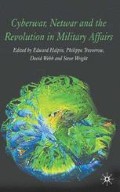Abstract
Since the times of Grotius1, an extensive system of international law in the public sphere has been developing. Increasing travel, trade, globalization, emigration, and cross-cultural marriage have also seen the emergence of a whole area of international law in the private sphere.
Access this chapter
Tax calculation will be finalised at checkout
Purchases are for personal use only
Preview
Unable to display preview. Download preview PDF.
References
Darnton, G. (ed.). The Bomb and the Law: London Nuclear Warfare Tribunal Evidence, Commentary and Judgment (Stockholm: Alva and Gunnar Myrdal Foundation, 1989).
Darnton, G. and S. Giacoletto, Information in the Enterprise: It’s More Than Technology (Burlington, MA: Digital Press, 1992).
Darnton, G. and J. Rattanaphol, RMA Applied to Thailand: European Conference on Information Warfare, 2nd edition (Reading, England: MCIL, June 2003).
Dixon, N.F. On the Psychology of Military Incompetence (London: Jonathan Cape, 1976).
Erbschloe, M. Information Warfare: How to Survive Cyber Attacks (New York: Osborne/McGraw-Hill, 2001).
Falk, R.A. ‘Historical Tendencies, Modernizing and Revolutionary Nations, and the International Legal Order’, in R.A. Falk and S.H. Mendlovitz (eds). The Strategy of World Order (New York: New York Law Fund, 1966), vol. 2, pp. 172–88.
Greenberg, L.T., S.E. Goodman, and K.J Soo Hoo, Information Warfare and International Law (Washington, DC: National Defense University Press, 1997).
Grief, N. ‘Legality of the Threat or Use of Nuclear Weapons’, International and Comparative Law Quarterly, 46 (1997), 681–8.
Grotius, H. The Most Excellent Hugo Grotius. His Three Books Treating of the Rights of War and Peace (London: Thomas Basset, 1682). (Text readily available on line. See, for example, http://www.ecn.bris.ac.uk/het/grotius/Law2.pdf.)
ICJ, Advisory Opinion on the Legality of the Threat or Use of Nuclear Weapons (Hague: International Court of Justice, 1996).
Lee, L. The Day the Phones Stopped: the Computer Crisis — the What and Why of It, and How We Can Beat It (New York: Donald I. Fine, Inc., 1991).
Levidow, L. and K. Robbins, ‘Towards a Military Information Society?’, in L. Levidow and K. Robbins (eds). Cyborg Worlds: the Military Information Society (London: Free Association Books, 1989).
Manson, R. The Pax Legalis Papers: Nuclear Conspiracy and the Law (Oxford: Jon Carpenter, 1995).
Mothersson, K. From Hiroshima to the Hague: a Guide to the World Court Project (Geneva: International Peace Bureau, 1992).
Neumann, P. Computer-related Risks (London: Addison-Wesley Publishing Company, 1995).
OED, Oxford English Dictionary, 2nd edn (Oxford: Oxford University Press, 1989).
Pictet, J.S., F. Siordet, C. Pilloud, J.P. Schoenholzer, R.J. Wilhelm and O.H. Uhler (eds), Geneva Convention for the Amelioration of the Condition of the Wounded and Sick in Armed Forces in the Field: Commentary (Geneva: International Committee of the Red Cross, 1952). (This set is what is usually supplied on asking for a copy of the ‘Geneva Conventions’.)
Roberts, A. and R. Guelff (eds). Documents on the Laws of War (Oxford: Clarendon Press, 1982).
Singh, N. and E. McWhinney, Nuclear Weapons and Contemporary International Law, 2nd revised edition (Dordrecht: Martinus Nijhoff Publishers, 1989).
Tofts, D., A. Jonson and A. Cavallaro (eds). Prefiguring Cyberculture: an Intellectual History (Cambridge, MA: MIT Press, 2002).
Virilio, P. and S. Lotringer, Pure War (New York: Semiotext(e), 1983).
Editor information
Editors and Affiliations
Copyright information
© 2006 Geoffrey Darnton
About this chapter
Cite this chapter
Darnton, G. (2006). Information Warfare and the Laws of War. In: Halpin, E., Trevorrow, P., Webb, D., Wright, S. (eds) Cyberwar, Netwar and the Revolution in Military Affairs. Palgrave Macmillan, London. https://doi.org/10.1057/9780230625839_9
Download citation
DOI: https://doi.org/10.1057/9780230625839_9
Publisher Name: Palgrave Macmillan, London
Print ISBN: 978-1-349-54123-2
Online ISBN: 978-0-230-62583-9
eBook Packages: Palgrave Political & Intern. Studies CollectionPolitical Science and International Studies (R0)

